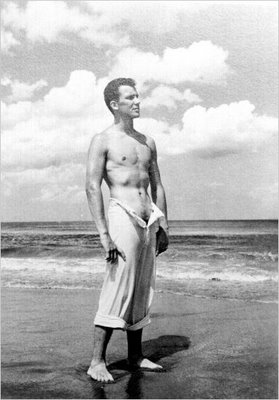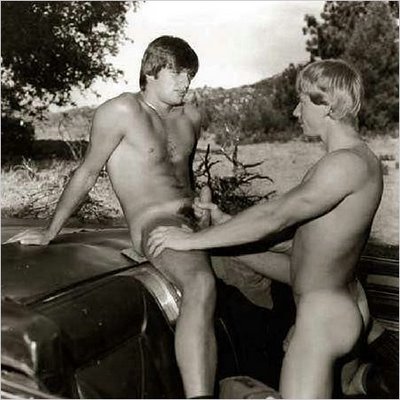Vintage Thursday
Florida Orange Juice Boycott
The first glbtq boycott to receive considerable media attention took place in 1977 when Anita Bryant, a pop singer and former Miss Oklahoma then employed as a spokesperson for the Florida Citrus Commission, founded an organization called Save Our Children, which was dedicated not to the welfare of children but to the repeal of a Dade County, Florida ordinance that protected gay men and lesbians from discrimination in employment and housing.
The prospect of a boycott of Florida orange juice, the product Bryant endorsed in advertisements, drew a mixed reaction from people concerned with gay and lesbian rights. Some, lesbians in particular, were reluctant to undertake a campaign that could cost a woman her job when Bryant's actions had been in her role as a private citizen rather than in the course of her work for the Florida Citrus Commission. Others expressed fears that Bryant would be cast as a "holy Christian martyr," concern for farm workers, and doubts about the effectiveness of boycotts as a tactic. Some of these reservations were allayed when the Florida Citrus Commission specifically endorsed Bryant's campaign and announced their support for her.
Momentum for the boycott grew. San Francisco activist Harvey Milk, then a columnist for the Bay Area Reporter, called for support, comparing the action to the Boston Tea Party. The Alameda (California) County Democratic Central Committee encouraged "all Democrats" to take part in the boycott, citing "the Bryant forces' disregard for the separation of church and state." David Goodstein, the publisher of The Advocate, lent both editorial and considerable financial support to the campaign.
Organizations responded. The San Francisco Tavern Guild stopped using Florida orange juice, as did gay bars and restaurants throughout the country. The American Federation of Television and Radio Artists unanimously voted "to deny their services and talents to Bryant."
When put to a referendum, Dade County voters repealed the gay rights ordinance by a large majority, dealing a blow to the gay rights movement. Nevertheless, glbtq rights activists found cause for hope. Milk stated that because of Bryant "the entire nation finally opened up and talked about Gay people." Goodstein suggested she deserved a "Gay Unity Award" for bringing people together to fight for their civil rights.
Bryant's status as a controversial figure cost her professionally. Sponsorship offers dwindled, and she saw some eighty entertainment bookings canceled in a year. Both her professional and personal life were in a shambles by 1980, when she divorced--for which she was condemned by many of the same right-wing Christians who had applauded her campaign to abridge glbtq rights--and was fired by the Florida Citrus Commission.
Bryant returned to Oklahoma, remarried, and tried to resurrect her career. By 1997 she and her second husband had numerous liens against them for unpaid taxes and other debts, and they filed for bankruptcy. Their next venture, a theater in Pigeon Forge, Tennessee, was also unsuccessful. They filed for bankruptcy again in 2001.
In 1994 the Florida Citrus Commission hired another homophobic spokesperson, Rush Limbaugh. Joining glbtq rights groups in denouncing the choice were feminists, African Americans, and the state's governor, Lawton Chiles.
Dade County finally passed a new glbtq rights ordinance in 1998. A repeal effort by conservative Christians in 2002 failed.
One of Anita Bryant's "Save Our Children" television news conferences is zapped by a pie-wielding gay activist. A historic document of political strategy.









2 comments:
The video is certainly worth watching. That frosty bitch got exactly what she deserved.
Thanks for the link.
Excellent, love it! » » »
Post a Comment